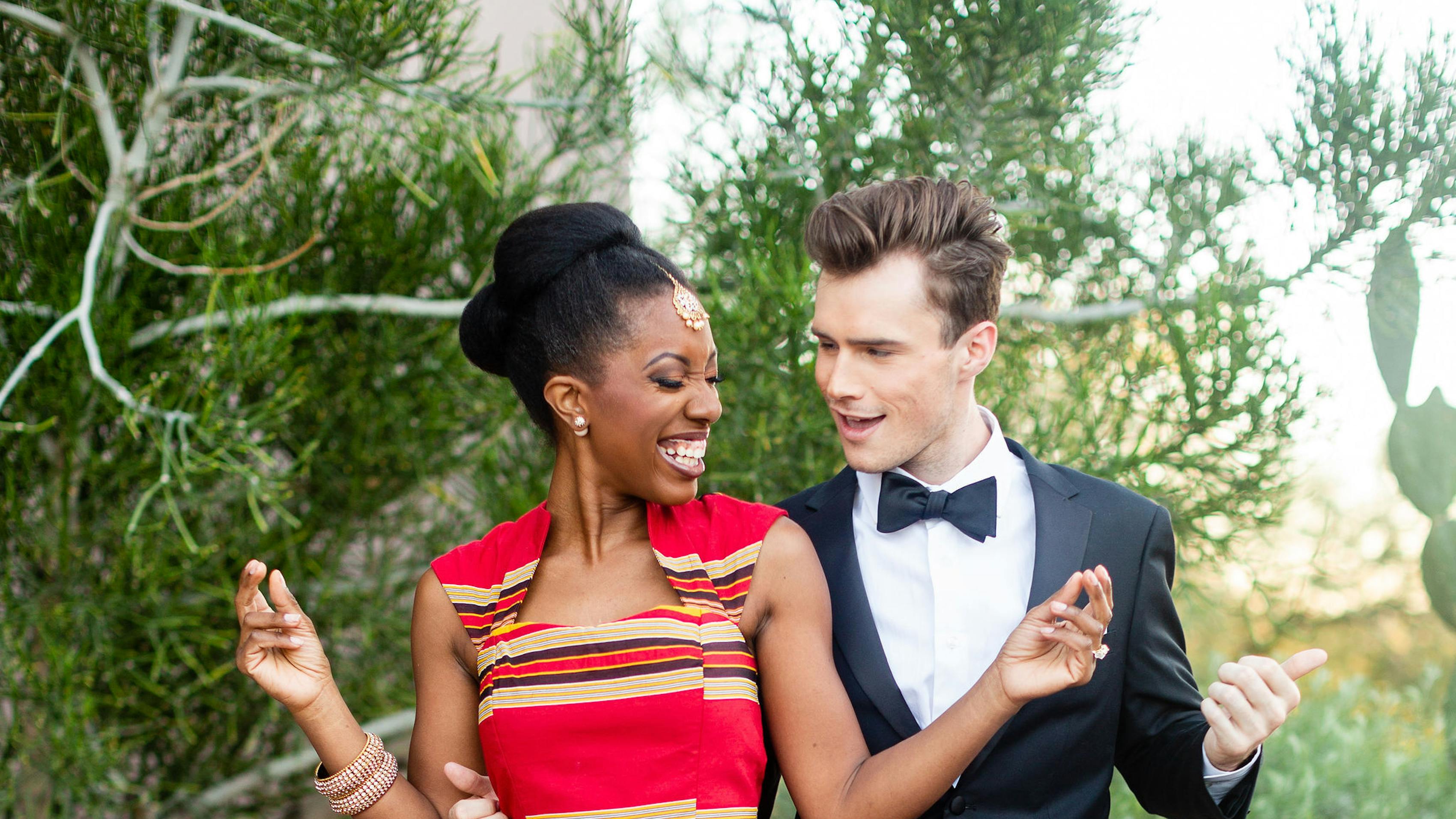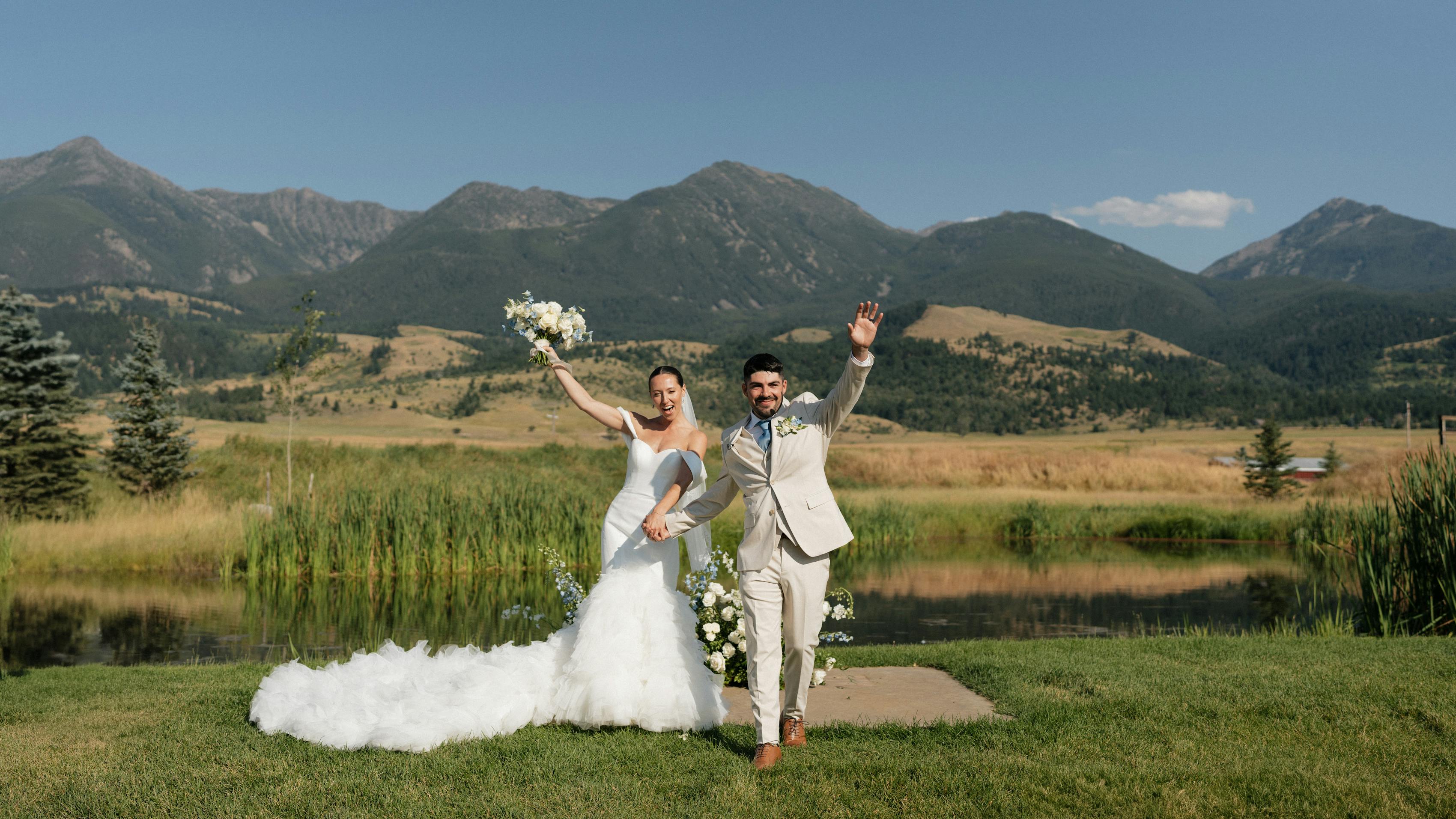African Wedding Traditions to Incorporate into Your Wedding Ceremony
Published on April 10, 2021 | Updated April 12, 2021
By Nikki IgboAs a descendant of enslaved Africans who was born and raised in California, I do not know the specifics of the tribe, languages or customs from which I hail. But I do recognize what speaks to my heart and what feeds my spirit. I’m not alone in this. Many of us who hunger for this history have been able to nourish ourselves with insights from digital Black history encyclopedias to Clubhouse chats to national museums.
During my personal journey to reconnect, I’ve come across several traditions that tasted every bit as familiar as a spicy pot of gumbo. I discovered facets of myself and my family in everything from cuisine, to dance, to hair and skin care to wedding customs. The following five wedding traditions stood out as options all African diasporans can sample and savor no matter where in the world they’ve landed.
1. Celebrate in Color
Weddings present countless possibilities to showcase your unique heritage and cultural values by incorporating African fabrics such as Kente cloth or Ankara into your wedding party’s look. These brilliantly colorful textiles often feature African color schemes and symbolism. For example, an Adrinka symbol (of Ghana) Adwo represents peace and tranquility while Hwehwemudua signifies excellence and knowledge. For inspiration on how to boost your ceremony’s color content, check out these Ashanti wedding looks.
2. Throw a Kitchen Party
Much like the Western bridal shower, the kitchen party is a Zambian tradition that helps to prepare brides for marriage. The party guests bring gifts for creating a comfortable, well-equipped home and offer practical insights on physical intimacy. The pre-marital event isn’t just an amazing ladies-only affair with festive food and music; it also gives the bride-to-be an opportunity for open conversation on all aspects of wedded bliss with close female relatives and trusted female friends.
3. Break Kola Nut at the Reception
Centuries before it served as a key ingredient in major soft drinks, people throughout West Africa presented kola nut to guests on special occasions including weddings, baby naming ceremonies and funerals. To present, bless and share kola nut is to extend camaraderie, respect and hospitality and set the proper tone for a joyful, memorable event. Harvested from the star-shaped fruit of the kola tree, the nut is known to boost metabolism, aid digestion, increase blood circulation, and improve energy levels—which is great for keeping guests upbeat all through the wedding reception. As freshness is key to enjoying kola nut, it’s best to source the indigenous West African specialty from African or Caribbean grocers or try online markets like this one.
4. Pour Out a Little Liquor
The ritual pouring of a liquid (usually wine) or the “libation” is practiced throughout the African continent. Though the steps of the libation may vary from group to group, the act is uniform in honoring the Creator, the earth, the ancestors and all of those elements of the material and spiritual world to whom we owe appreciation for our existence, survival and advancement. You can demonstrate your gratitude by incorporating the libation before toasting your union.
5. Turn the Spotlight on Family Griots
The Mandé family of languages and the many people who speak its various dialects live throughout Mauritania, Gambia, Guinea-Bissau, Ginuea, Sierra Leona, Liberia, Côte d'Ivoire, Ghana, Benin, Nigeria, Niger, Burkina Faso and Mali. Originating in the Mail Empire which existed from the early 1200s to the late 1600s, the Mande languages enjoyed such longevity specifically because of the griot tradition. As honored historians and musical entertainers, griots (or storytellers) were the educated, wise and memorious individuals who maintained and recounted family history through spoken word and song at significant social events.
Continue the griot tradition at your wedding by inviting a family elder, poet or singer from both the bride’s and groom’s family to present stories of your heritage through speak, song or rhyme.
Whether you're interested in incorporating one or all of these traditions into your big day, remember you have the freedom to adapt them to fit your unique African diasporan experience. Just as jollof rice came to the West and became jambalaya over time, remember these practices are foundational aspects of your history that you're free to season to taste.

Nikki Igbo
Nikki Igbo is a freelance writer, political scientist, and Black history enthusiast who has been known to ugly cry at wedding ceremonies. Plotting and exec...




